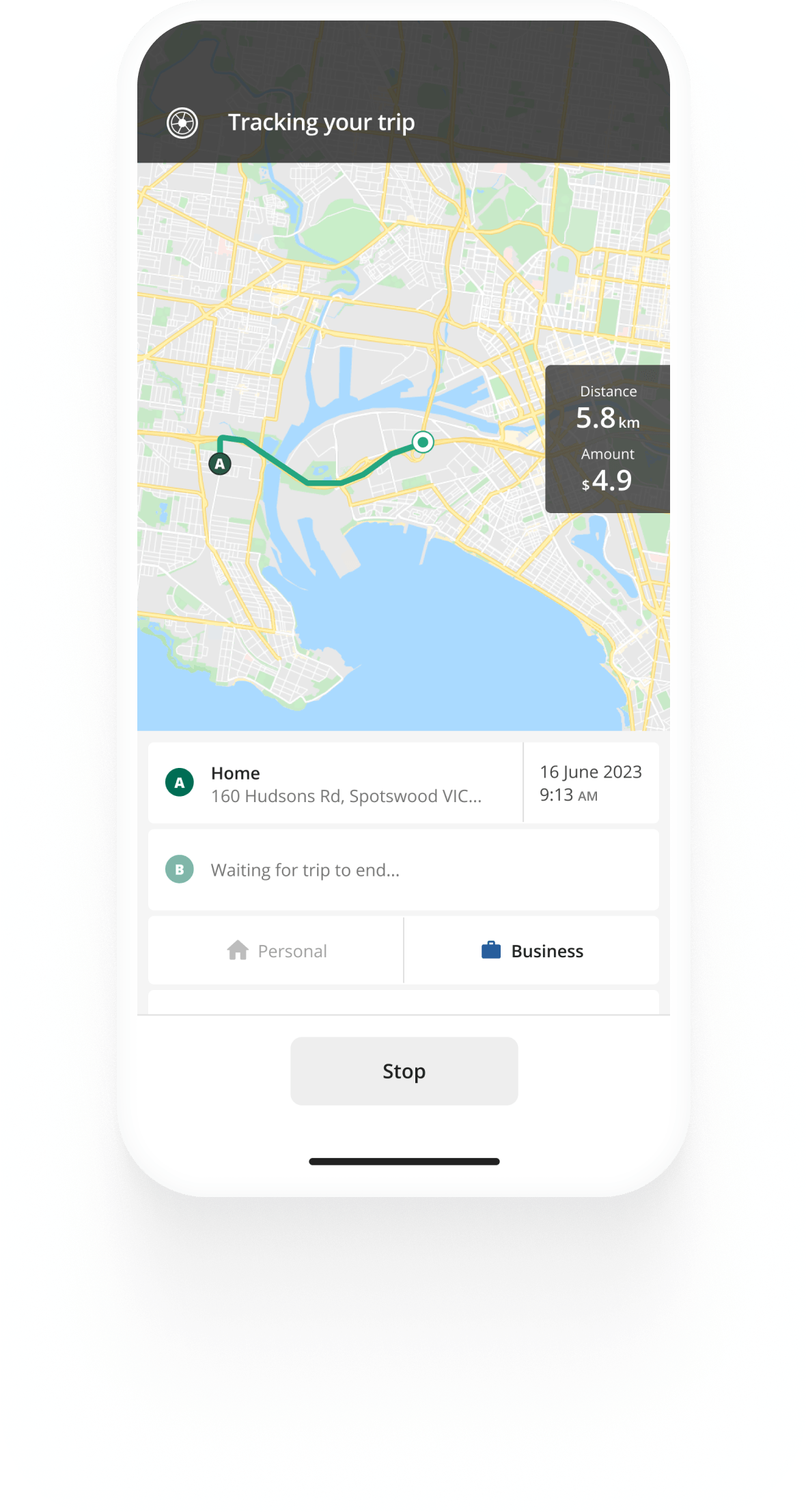Track mileage automatically
Get started.svg)
ATO Cents per KM Rate 2023/2024
The new tax year is starting on July 1st, and the ATO has announced the new cents per km rates for the 2023/2024 year. See how the rate has changed, why, and how to use it to claim business kilometres.
Cents per km rate 2023/2024
The ATO cents per km rate is:
- $0.85 cents per business-related kilometre


Kilometre tracking made easy
Trusted by millions of drivers
Automate your logbook Automate your logbook

Automatic mileage tracking and ATO-compliant reporting.
Get started for free Get started for freeWhy the cents per km rate is increasing
The ATO takes into account the fixed and variable costs of running a vehicle each year when revising the cents per km rate. While Australia has overall seen an increase in fuel prices since the beginning of this year, many other factors influence the cents per km rate, including vehicle depreciation, road taxes, insurance, repair costs and more.
Since the costs for maintaining and running vehicles are higher than last year, the ATO has reviewed the rate and increased it to better account for these cost increases.
How the new 2023/24 cents per km rate will impact you
You will be able to use the 2023/2024 per km rate to claim up to 5000 business kilometres you’ve driven throughout the 2023/24 tax year as a tax deduction. Note that you won’t be able to claim other vehicle expenses, as the rate is meant to cover all running costs of your vehicle, including depreciation. A higher per km rate for the new tax year will mean you can get a higher deduction at tax time for the kilometres you travel for work.
If you receive reimbursement for your business-related kilometres from your employer, you won’t be able to then also claim a tax deduction. Employers are not obliged to use the official rate set by the ATO - they can choose to reimburse you at a higher or lower than the ATO cents per km rate.
How many kms can you claim on tax without a logbook?
As mentioned, you can claim up to 5000 kms with the cents per kilometre method. And it does not oblige you to provide written evidence of the kilometres you’ve driven, however, the ATO specifies that you may be asked to show how calculated your business kilometres.
We recommend keeping a log of your kilometres throughout the year to make sure you note down how much you drove for work and maximise your tax deduction. Automating your km logbook will do the work for you - no need to spend time writing down every business trip you take.
The Driversnote vehicle logbook app can automatically track and log your trips.
What types of vehicles are eligible for the ATO per km rate?
The ATO per km rate can be claimed for vehicles that are owned or leased by an individual and are used for work-related travel, including cars, station wagons, four-wheel drives, and utilities (utes) that have a carrying capacity of less than one tonne. For other vehicles, such as motorcycles, the ATO has other claim methods - the actual costs method and the logbook method. Check which method you can use in this guide on deducting vehicle expenses from the ATO.
FAQ

Tired of logging mileage by hand?
Effortless. ATO-compliant. Liberating.
Top posts
- Driversnote vs GOFAR
- Work-Related Travel Expenses for Employees
- Sole Trader Tax Deductions: An Essential Guide
Related posts
ATO Mileage Guide
Latest update: 23 June 2025 - 5 min read
Learn about the rules of reimbursing employees for their car expenses or deducting expenses as an employee or self-employed individual.
Driversnote vs GOFAR
Latest update: 2 February 2026 - 10 min read
Compare Driversnote and GOFAR in 2026. See which logbook app is best for ATO compliance, ease of use, privacy, and everyday driving needs.
Work-Related Travel Expenses for Employees
Latest update: 16 January 2026 - 2 min read
Learn about the ATO rules on work-related travel expenses and see if they are reimbursable or deductible at tax time in Australia.


